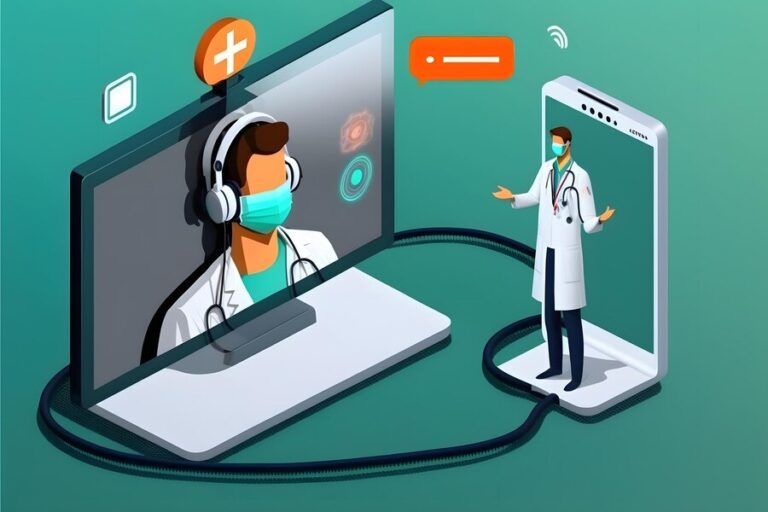Why Regular Glucose Checks Are Essential for Diabetes and Prediabetes Management
The Importance of Monitoring Blood Glucose Levels
Regular monitoring of blood glucose levels is paramount for individuals managing diabetes or prediabetes. Maintaining blood sugar levels within the target range can prevent complications and significantly improve the quality of life. Making informed decisions regarding diet, exercise, and medication becomes challenging without regular checks. An at home diabetes test provides a convenient and effective way to keep track of your glucose levels from the comfort of your home. This ensures that you can make timely adjustments to your lifestyle or treatment plan based on your results, ultimately leading to better management of your condition.
Beyond convenience, regular monitoring helps understand the impact of various factors such as meals, physical activity, stress, and medication on blood sugar levels. Knowing these variations empowers individuals to manage their condition better, reducing the likelihood of severe episodes of hyperglycemia or hypoglycemia. Over time, consistent monitoring allows you to recognize patterns and trends, making it easier to predict and manage blood sugar fluctuations more effectively.
How Frequent Monitoring Helps in Early Detection
Frequent glucose checks facilitate early detection of unfavorable blood sugar trends. Catching these trends early allows for timely interventions, preventing the condition from worsening. According to the CDC, regular monitoring is especially crucial for those with a history of hyperglycemia or hypoglycemia. Early detection helps to prevent severe complications such as diabetic ketoacidosis or hyperosmolar hyperglycemic state, both of which are medical emergencies that require immediate attention.
Early intervention, made possible through regular glucose monitoring, can significantly improve long-term health outcomes. It enables the initiation of lifestyle changes and medical treatments before irreversible damage occurs. This proactive approach can also reduce healthcare costs by avoiding emergency room visits and hospitalizations, making regular glucose monitoring a health-saving and cost-effective practice.
Technological Advancements in Glucose Monitoring
With new technologies, glucose monitoring has become more accessible and accurate. Continuous glucose monitors (CGMs) and smart glucose meters provide real-time readings, helping users adjust their treatment plans instantly. These tools are particularly beneficial for those who find finger-prick tests cumbersome. Many of these new devices sync data with smartphones, allowing for easy tracking and sharing of glucose levels with healthcare providers. This real-time data helps make immediate and informed diet, activity levels, and medication decisions.
Technology integration in glucose monitoring has also paved the way for advanced data analytics, which can offer more profound insights into blood sugar trends. Some CGMs come with predictive alerts that notify users of impending highs and lows, allowing them to take preemptive actions. Additionally, these devices often come with user-friendly interfaces and educational tools, making it easier for individuals to understand their readings and act accordingly.
Impact on Lifestyle Management
Consistent glucose checks aid in refining a patient’s lifestyle choices. When individuals see the immediate effects of their dietary habits or physical activity on their blood sugar levels, they become more motivated to adopt healthier behaviors. For example, knowing that a brisk walk can lower blood sugar levels might encourage someone to incorporate walking into their daily routine. Such actionable insights make it easier for individuals to stick to a healthier lifestyle, ultimately leading to better glucose control and a reduced risk of complications.
The insights gained from regular monitoring can also help individuals create personalized meal and exercise plans. For instance, you might discover that certain foods significantly impact your blood sugar levels more than others, allowing you to make more informed dietary choices. Similarly, understanding how different types of physical activities affect your glucose levels can help you plan your workout routines more effectively.
Empowering Patients Through Data
Knowledge is power, and the data from regular glucose checks empower patients to take control of their health. By understanding how their bodies react to various stimuli, individuals can better collaborate with healthcare providers to tailor their treatment plans. This proactive approach reduces the risk of complications and enhances overall well-being. Tracking and monitoring glucose levels over time also enables patients to recognize long-term patterns and trends that can effectively guide their healthcare decisions.
Empowerment through data improves physical health and boosts confidence and self-efficacy. When individuals clearly understand their condition and how to manage it, they are more likely to take an active role in their care. This can lead to better adherence to medication, more consistent lifestyle modifications, and a generally more proactive approach to health management.
The Role of Healthcare Providers
Healthcare providers play a significant role in guiding patients through glucose monitoring. Regular consultations and personalized advice based on glucose readings can significantly impact a patient’s management plan. According to the CDC, effective diabetes management is a collaborative effort between patients and their healthcare teams. Regular consultations allow for timely adjustments to medication and treatment plans, ensuring that patients remain on the path to optimal health.
Healthcare providers can also offer valuable education and resources to help patients understand their readings and make informed decisions. They can recommend appropriate technologies, suggest lifestyle modifications, and provide emotional support, all contributing to more effective diabetes management. A strong patient-provider relationship based on trust and communication is essential for achieving long-term health goals.
Mental and Emotional Well-being
Monitoring glucose levels isn’t just about physical health; it also impacts mental and emotional well-being. When individuals control their glucose levels, they often experience reduced stress and anxiety. This holistic approach to health underlines the importance of regular glucose monitoring in achieving a balanced life. By knowing their glucose levels, individuals can avoid the mental strain associated with unpredictable high or low readings, leading to greater peace of mind and a more relaxed approach to managing their condition.
Moreover, regular monitoring can provide a sense of accomplishment and control, which is particularly important for mental health. Achieving target glucose levels can boost self-esteem and motivate individuals to continue working towards their health goals. This positive feedback loop enhances physical and emotional well-being, contributing to a higher quality of life.
Summary
Regular glucose checks are indispensable in the management of diabetes and prediabetes. They provide crucial data about lifestyle changes, medical decisions, and overall health strategies. Technological advancements have made monitoring easier and more effective, empowering patients to take charge of their well-being. Through regular checks, technological tools, and healthcare provider support, individuals can manage their condition effectively and improve their quality of life. Regular glucose monitoring supports physical health and contributes significantly to the mental and emotional well-being of those managing diabetes and prediabetes. With data and insights, individuals can live healthier, more balanced lives.







